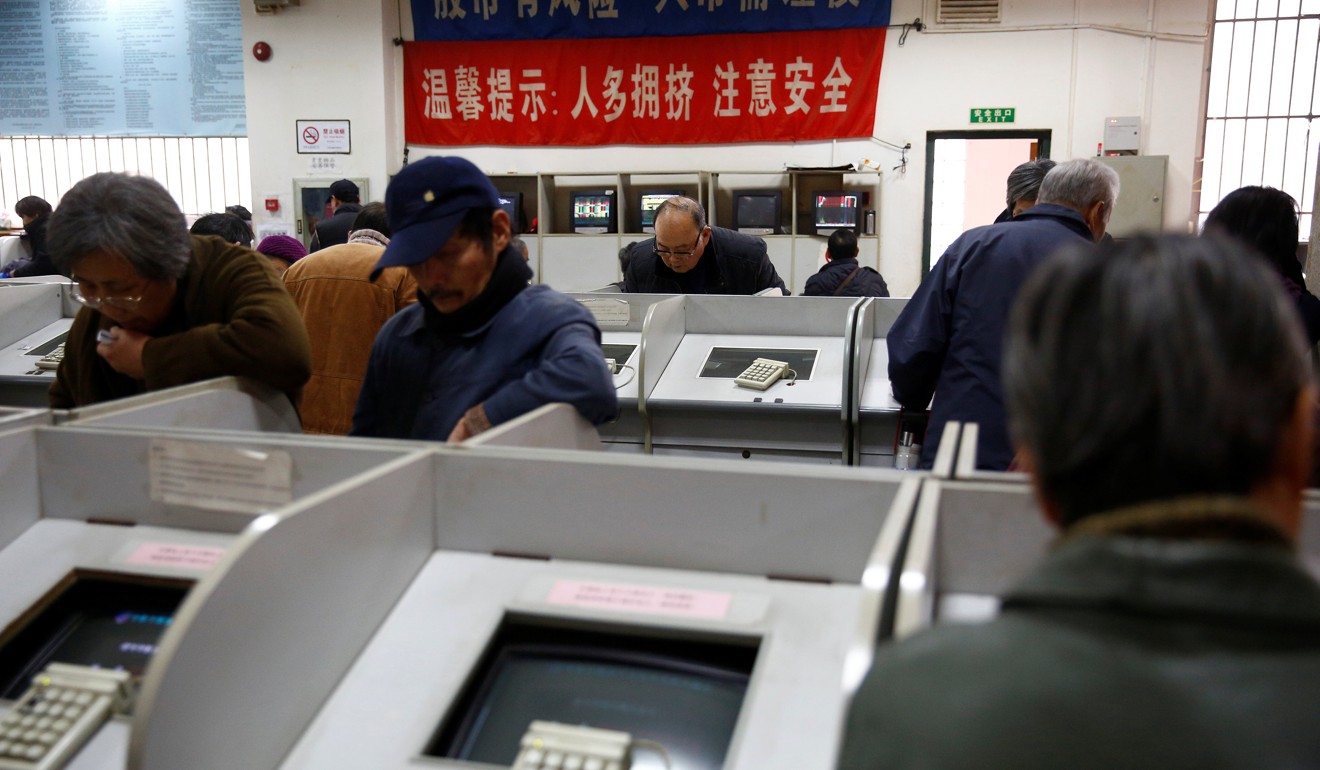
Will China’s grip on share sales bear short term gain or long term woe?
New rules restricting stock dumping by substantial shareholders to affect M&A sentiments and also weigh on A-share liquidity, analysts say
While the Chinese securities regulator’s latest move to rein in stock dumping by substantial shareholders will support the secondary market performance in the short run, the downside may be farther reaching.
Analysts believe that the stricter rules will weigh on the primary merger and acquisition market (M&A) and dampen investment activities by professional institutional investors that could in turn impact the long-term liquidity and performance of the A-share market.
The benchmark Shanghai Composite Index added 0.23 per cent to close at 3117.2 on Wednesday, after it resumed trading following a two-day Dragon Boat Festival holiday. The Shenzhen Component Index added 0.06 per cent to close at 9864.8.
“The new rules have largely alleviated pressure brought by share disposal by substantial shareholders on the A-share market, which will restore market confidence in short term,” analysts Liao Ling and Chen Jie at GF Securities based in Guangzhou wrote in a research note issued on Monday.
“As for the long run, it could eliminate the arbitrage room between the primary market and secondary market, pushing valuation of some companies good at speculating share prices, back to normal, while benefiting companies stressing organic growth and shareholders’ benefit,” the note said.

“They use private share placement to support an M&A or other business expansion, and then use the new story to speculate the stock price, and allow that to cycle,” he said.
The China Securities Regulatory Commission (CSRC) introduced a set of new rules on Friday night, which tightens control on stock selling by substantial shareholders – major shareholders holding a 5 per cent stake or more, pre-initial public offering (IPO) investors, and investors subscribing to private share placement.
The CSRC had capped sales by major shareholders at 1 per cent of the company’s total shares every three months, according to a January 2016 notice, whereas the stock selling by private share placement investors, and pre-IPO investors were not bounded by that restriction.
“Under earlier rules, private equity houses, industry funds, or big individual investors could often subscribe to private share placement plans, then cash out and reap the gain after share prices moves upward after announcement, although their investments are locked up by 12 months,” Guo said.
“The new rules are introduced to fix the loopholes, as now, three kinds ofsubstantial shareholders are bound by the strict share sale requirements,” he said.
Another loophole that the CSRC closed in the revised rules is that major shareholders are barred from transferring shares to a third party via block trades and then using that institution to sell into the market, he added.
In recent years, some companies have developed a new way to lift share prices. They use private share placement to support an M and A...then use the new story to speculate the stock price, and allow that to cycle
According to data analysed by the Shanghai Securities Journal, a total of 1.22 trillion yuan worth of privately placed shares can be sold when the lock-up period expires in 2018. But the new rules will delay 611.4 billion yuan of the 1.22 trillion yuan of shares from cashing out.
“The restriction on pre-IPO and private placement investors will largely discourage big investors [from investing in the primary market] as the arbitrage room has been drained. However, they are important liquidity contributor on A-share market,” Guo said.

“Therefore, the new regulations could be easily interpreted as stabilising the market in the short term and may bring positive responses in the market. However, we don’t think this is a decisive factor that could determine medium-range movements in the stock market,” he wrote in a note issued Wednesday.
Gao noted that as the selling of private placement shares becomes lengthier, listed companies’ inorganic growth may be curbed, and the market’s attention could shift to organic growth-oriented companies.
“The CSRC is trying to stabilise the market by restricting stock dumping by substantial shareholders and slowing down the new share floating pace. However, the A-share market is still under the headwind of stretched monetary liquidity and corporate earnings,” said a strategy report issued by Haitong Securities on Monday.

